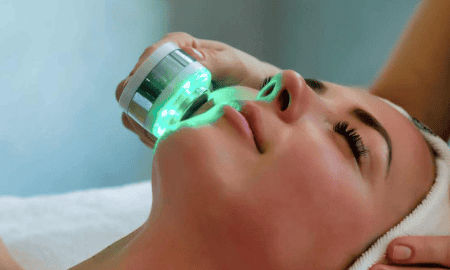
Patient safety is a cornerstone of high-quality healthcare, and nurses play a vital role in ensuring that patients receive safe and effective care. Continuing education for nurses is crucial in maintaining and enhancing patient safety standards.
By staying current with medical advancements, enhancing clinical skills, improving communication, understanding patient safety protocols, and developing critical thinking, nurses can significantly contribute to safer patient outcomes.
1. Staying Updated with Medical Advances
The medical field is constantly evolving with new treatments, technologies, and research findings. For nurses, staying updated with these advancements is essential to providing the best possible care. Continuing education offers a structured way to keep up with these changes. Courses, workshops, and seminars provide information on the latest medical procedures, innovative technologies, and emerging healthcare trends.
By staying informed about the latest advancements, nurses can apply the most current and effective treatments to their patients. This not only improves patient outcomes but also enhances the overall quality of care. Furthermore, being knowledgeable about new technologies and treatments helps nurses to educate patients about their options, fostering a collaborative and informed approach to healthcare.
2. Enhancing Clinical Skills
Advanced clinical skills are fundamental to high-quality nursing practice. Continuing education through programs, like a nursing RN BSN program, provides nurses with opportunities to enhance their clinical skills. These programs cover a wide range of topics, from advanced patient assessment techniques to specialized nursing interventions.
For example, a nurse might learn new techniques for wound care, pain management, or intravenous therapy. Improved clinical skills allow nurses to perform procedures more efficiently and with greater precision, reducing the risk of complications and errors. Moreover, enhanced clinical skills contribute to a nurse’s confidence and competence, which positively impacts patient care and safety.
3. Learning About Patient Safety Protocols
Patient safety protocols are guidelines designed to prevent errors and harm in healthcare settings. These protocols cover various aspects of patient care, including infection control, medication administration, and emergency response. Continuing education provides nurses with training on these essential protocols, ensuring that they are well-versed in the latest safety standards.
For example, nurses can learn about the proper techniques for hand hygiene, the safe administration of medications, and the protocols for handling infectious diseases. Understanding and adhering to these protocols minimizes the risk of errors and enhances overall patient safety. Moreover, continuous training on patient safety protocols helps nurses identify and mitigate potential risks in their practice environments.
4. Understanding Legal and Ethical Issues
Legal and ethical considerations are integral to nursing practice, impacting everything from patient care to professional conduct. Continuing education in these areas helps nurses stay informed about the latest regulations, standards, and ethical guidelines that govern their practice. Courses on legal and ethical issues provide essential knowledge on patient rights, confidentiality, informed consent, and professional boundaries.
For example, nurses learn about the importance of maintaining patient confidentiality, adhering to HIPAA regulations, and obtaining proper informed consent before procedures. Understanding these legal requirements ensures that nurses protect patient privacy and uphold their rights, thereby reducing the risk of legal repercussions for both the nurse and the healthcare facility.
Ethical training helps nurses navigate complex situations where they may face moral dilemmas. By understanding ethical principles such as autonomy, beneficence, and justice, nurses can make decisions that are in the best interest of their patients. This knowledge fosters a culture of ethical practice, ensuring that patient care is conducted with integrity and respect.
5. Developing Critical Thinking and Decision-Making
Critical thinking and decision-making are key components of effective nursing practice. Nurses frequently encounter complex and rapidly changing situations that require sound judgment and quick decision-making. Continuing education courses are designed to enhance these skills by providing nurses with scenarios and exercises that challenge their problem-solving abilities.
Through these courses, nurses can develop their ability to analyze situations, consider various options, and make informed decisions. For example, they might engage in case studies or simulations that mimic real-life clinical situations, allowing them to practice and refine their critical thinking skills. Enhanced decision-making abilities lead to more accurate assessments, timely interventions, and improved patient outcomes.
By developing strong critical thinking skills, nurses can better navigate the complexities of patient care, anticipate potential issues, and implement effective solutions. This proactive approach to nursing care is essential for maintaining high standards of patient safety and delivering exceptional healthcare services.
6. Promoting Evidence-Based Practice
Evidence-based practice (EBP) is a critical component of modern healthcare, emphasizing the use of current best evidence in making decisions about patient care. Continuing education programs play a vital role in promoting EBP by teaching nurses how to access, appraise, and apply research findings to their clinical practice.
Through EBP courses, nurses learn to critically evaluate research studies and integrate findings with their clinical expertise and patient preferences. This approach ensures that nursing care is grounded in the latest scientific evidence, leading to improved patient outcomes and safety. For instance, implementing evidence-based protocols for infection control can significantly reduce the incidence of healthcare-associated infections.
Promoting EBP also involves fostering a culture of continuous learning and inquiry. Nurses are encouraged to question existing practices, seek out new knowledge, and contribute to the advancement of nursing science. This commitment to evidence-based care enhances the overall quality and safety of patient care.
Key Takeaways
Continuing education in nursing is essential for ensuring the highest standards of patient safety and care quality. By committing to lifelong learning, nurses not only enhance their professional skills but also contribute to a safer, more effective healthcare environment.
Encouraging and supporting ongoing education helps nurses stay at the forefront of their field, ultimately benefiting patients and healthcare systems as a whole.
















Follow Us